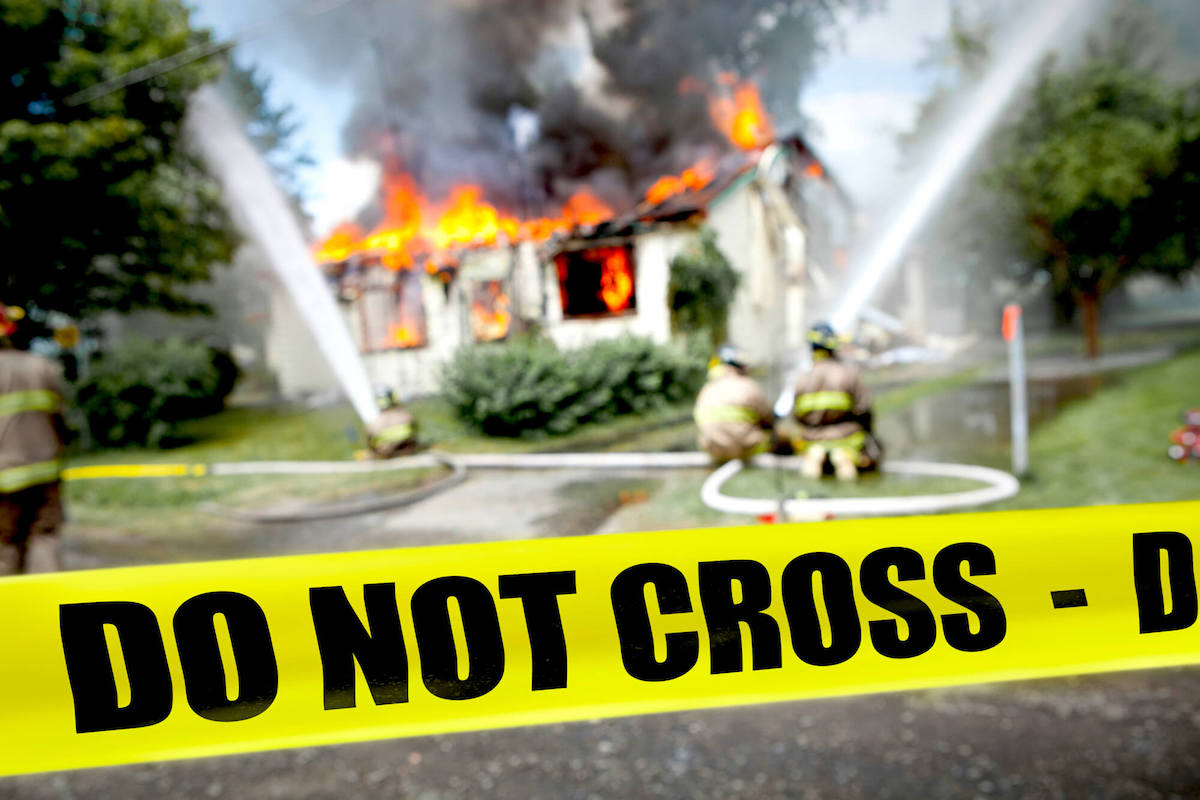Smart homeowners know they need home insurance. However, many homeowners do not fully understand how home insurance works or what is actually covered under their home insurance policy until they are dealing with a home insurance claim - at this point many realize that they don't have as much coverage as they thought and face several challenges trying to get an adequate settlement for property damage.
Home insurance can be tricky. Why is storm damage covered but not flooding? What can you claim under your home insurance policy? What’s the difference between an HO5 policy and an ordinary home insurance policy?
Right here we’re explaining all the things you should know about homeowners insurance and how it works. If you would like to skip the information about Homeowners Insurance Policies you can jump straight to advice for Homeowners Insurance Claims.

What is Homeowners Insurance?
Homeowners insurance provides financial protection for your home and personal belongings. If your home and personal belongings are damaged in an unexpected event – like a house fire – then your insurance company will reimburse you.
Homeowners insurance is made up of several types of coverage. These home insurance coverage options repair or replace your home and any belongings if they are damaged by certain perils – like fire or theft.
Homeowners insurance may also help cover your liability. It may cover costs if you accidentally damage another person’s property, for example, or protect you from liability if a visitor is injured at your home.
What Does Home Insurance Cover?
Home insurance typically covers the following four major items:
- Your dwelling (i.e. your home)
- Other structures on your property (a detached garage or shed, for example)
- Personal property (any items inside your home)
- Liability for injuries experienced at your property or damage you inflict to someone else’s property
A standard home insurance policy protects the dwelling on an open perils basis. This means the property is protected from any events except for those specifically excluded by the policy. Many home insurance policies exclude earthquakes and floods, for example. If your home burns down, then you’ll be covered. If your home is destroyed by an earthquake, however, you will not be covered. You may be able to add earthquake and flood damage through your own insurer or through a third party organization (like FEMA’s National Flood Insurance Program).
A standard home insurance policy protects your possessions on a named perils basis. This means your personal property is only protected against specific perils named in the policy – like theft or fire. Additionally, a standard policy may not protect high-value items – like jewelry or expensive electronics – unless you add specific endorsements.
How Does Dwelling Protection Work?
Standard home insurance policies come with dwelling protection. This protection covers the structure of the home in which you live. Dwelling protection may also extend coverage to certain structures attached to the home, including a deck or garage.
Most insurance policies also extend coverage to other structures separate from your home – like a shed, a fence, or a detached garage.
How Does Personal Property Protection Work?
Home insurance doesn’t just cover the structure of your home. It also covers the items in your home.
If your furniture is damaged by a fire, for example, or if someone breaks in and steals your electronics, then home insurance should cover the costs of repairing or replacing these items.
High-value items may not be automatically covered by a home insurance policy. A standard home insurance policy, for example, may not cover a $10,000 engagement ring. However, you may be able to purchase extended coverage for items like jewelry, watches, furs, and high-end electronic items that exceed your personal property coverage limits.
How Does Liability Protection Work?
Homeowners insurance also includes liability coverage. This works in two ways: it can cover you when you damage someone else’s property. Or, it can cover you when someone else is injured on your property.
If someone who is not living with you is injured while on your property, then that person may be able to make a claim under your liability protection. If a visitor falls down your front steps, for example, because they were icy, then your home insurance bodily injury liability coverage may cover your legal expenses and the visitor’s medical bills if you are found at-fault.
Some homeowners extend coverage even further with a personal umbrella policy, which adds liability coverage beyond $1 million. This is important for those with higher net worth (and more assets to seize in a lawsuit).
Homeowners Insurance Coverage Limits and Deductibles
Like most insurance policies, homeowners insurance has coverage limits and deductibles. Your homeowners insurance policy coverage is subject to a limit, which is the maximum amount your policy would pay towards a covered loss. If it’s going to cost $220,000 to repair your home, for example, and your home insurance has a limit of $200,000, then you would need to pay $20,000 out of pocket.
With most insurance claims, you will also need to pay a deductible before your insurance benefits are activated. Deductibles range from 1% to as much as 5% of your home's replacement value, depending on your policy. So a home insurance policy with $250,000 of dwelling coverage and a deductible set at 3%, would mean the policyholder "pays" the first $7,500 as a deductible. This amount is subtracted from the claim settlement amount sent by the insurance company. So in this example a claim for a covered loss at $250,000 would mean you receive $242,500 from the insurance company.
Coverage limits can be customized for your needs. You can raise limits to give yourself additional protection, for example. As mentioned above, you can also buy an umbrella policy to extend liability coverage.
What is HO5 Home Insurance?
HO5 home insurance has been described as the Rolls Royce of insurance policies. It’s what happens when you take a basic home insurance policy and add a ton of perks to it.
HO5 policies have a number of significant advantages. Core benefits, however, include:
Losses and damages are repaid on a replacement cost basis. That means you get reimbursed for the cost of replacing the lost item – not the cost minus depreciation.
There are expanded limits for losses and damages to high-value items like jewelry, electronics, and collectibles, among other items.
Your possessions are protected against loss on an open perils basis instead of a named perils basis. This means your stuff is protected against any losses except for things that are specifically excluded. A named perils insurance policy only protects against losses from events specifically named in your policy.
Understandably, HO5 policies are considerably more expensive than HO3 policies. Depending on your insurance needs, however, an HO5 policy may be the right choice for you. Plus, if you already live in a low-risk neighborhood, HO5 home insurance may not be significantly more expensive than HO3 insurance.
HO3 Versus HO5 Homeowners Insurance
There are significant differences between HO3 and HO5 policies. An HO3 plan is a basic home insurance policy, while an HO5 plan is a premium home insurance policy. The overall structure is similar, but you get more coverage with an HO5 policy.
Here are some of the key things to consider when comparing HO3 and HO5 insurance policies:
Both Have Open Perils Dwelling Coverage: Under both HO3 and HO5 insurance policies, your home is protected against open perils. That means you can make a claim for any type of loss affecting your home except for losses specifically excluded. Many policies exclude flooding, for example, but cover all other types of perils – from windstorm damage to meteorites hitting your home.
HO5 Policies Have Open Perils Personal Property Coverage: One of the biggest advantages of an HO5 policy is that your personal property is protected on an open perils basis. HO3 policies use a named perils system for personal property coverage.
Automatic Claims Reimbursement: Under an HO5 policy, you can submit a claim for losses or damages and automatically be reimbursed (unless the loss is specifically excluded). With HO3 policies, you need to submit a claim for losses or damages with evidence it was caused by a named peril.
Actual Cash Value Versus Replacement Cost: HO5 policies replace items based on replacement cost, while HO3 policies replace items based on actual cash value.
Scheduled Personal Property: HO5 policies automatically extend coverage to high-value items in your home (electronics, jewelry, silverware, collectibles, etc.). HO3 policies require you to add an endorsement and pay extra.
Only Available for Certain Homes: Insurance policies only offer HO5 policies to newer homes in areas with a low risk of natural disasters and low crime rates. HO3 policies are available to all home types.
Price: Understandably, HO5 policies tend to cost more than HO3 policies. You get considerably more coverage. However, if you live in a safe area with low crime rates, then the price difference might not be as considerable as you expected.
Should I Get an HO3 or HO5 Home Insurance Policy?
As with any insurance decisions, it’s up to you to decide how much insurance you need for your unique needs and budget.
Some homeowners get too little insurance and end up under-insured. Others get too much insured and end up over-insured.
However, if you live in a low-risk area with a high value relative to the rest of your state, then it may be a good idea to ask your insurer about an HO5 policy. If the policy is in the same general price range as an HO3 policy, then it’s probably worth the investment. If the HO5 policy is considerably more expensive, then you may want to stick with the HO3 option.
As with all insurance policies, make sure to double check your liability limits and other coverage items. Talk to your insurance company about adding extra coverage for personal property. Or, raise your limits to ensure you’re covered against all unexpected events.
How Do Home Insurance Claims Work?
How are you paid with a home insurance claim? Who gets the check? How do you handle home repairs? Home insurance claims can be complicated, so we're detailing the best tips and advice for home insurance claims below.
After a disaster strikes your home, you can make an insurance claim. The specific claim process varies between insurance companies. Some insurance companies let you start a claim using a mobile app, for example. Others require you to call the 24/7 claims line.
Or, if a natural disaster has struck your region, then your insurer may setup a mobile operations center in the affected area. You might visit the center in-person to make an insurance claim. This is common after hailstorms or windstorms affect a region.
Once you’ve filed the claim, a few things can happen.
Your insurance company might send a 24/7 emergency restoration company to your home. This restoration company will take steps to immediately reduce the damage to your property. If your home has flooded, for example, then the restoration company might setup fans and drying equipment, then start removing affected drywall to avoid mold buildup.
If you are forced to leave your home, then your insurer might wire emergency money to your bank account. This money is designed to cover emergency, short-term expenses like hotels and meals. After a house fire, for example, your family might have lost everything. You can use this money to stay in a hotel, replace your clothes, and eat.
The insurance company should also send an adjuster to your home to inspect the damages. This adjuster is a salaried employee of your insurance company. The adjuster will inspect the damages, ensure the event is covered by your policy, then estimate how much the claim will be worth.
From hereon out, every home insurance claim proceeds differently:
You May Receive Multiple Checks
For larger claims where both your structure and personal belongings are damaged, your insurance company might send multiple checks. You might receive one check for each category of damage, including one check to cover your damaged possessions and another check to repair your damaged home. You may also receive a check for additional living expenses (ALE) if you are unable to live in your home while it’s being repaired.
The Initial Payment Isn’t Final
The insurance company’s adjuster will inspect the damage and make an estimate. Contractors and other professionals may also inspect the property. Based on this analysis, the adjuster will offer you a certain amount of money for repairs. The first check you get from your insurance company, however, is often an advance against the total settlement. It’s not the final payout. If you later find other damage, then you can reopen the claim for additional coverage. Most insurers require you to report additional damage within one year.
Payment Might Be Sent to your Mortgage Lender
If you do not fully own your home, then the check for repairs may be made out to both you and the mortgage lender. As part of the terms of your mortgage, your insurance policy might need to list the mortgage lender, which means your lender is party to any insurance payments received. It also means your lender or management company might have control over your payment. The bank might hold your insurance settlement in installments, releasing payment periodically. If you’re unsure how the settlement process works with your mortgage lender, then we recommend contacting your mortgage lender to verify.
Condo Insurance Claims May Go to a Management Company
Similar to the above, some home insurance claim payouts will go to your management company. If you live in a co-op complex or condo, then your management company may have required you to list the building’s financial entity as a co-insured. This ensures that the entity with a financial interest in your property can verify that the necessary repairs are made.
Your Insurance Company May Pay the Contractor Directly
If you have signed a “direction to pay” with a contractor, then your insurance company may pay the contractor directly. A direction to pay is a legal document. It authorizes the insurer to deal directly with the contractor instead of running things through the policyholder first. There are pros and cons to assigning a direction to pay to a contractor. However, assigning your entire insurance claim to a third party removes you from the process and gives control of the claim to the contractor.
ALE Checks Should Be Made to You
Checks for additional living expenses (ALE) should be made out to you. These expenses are unrelated to repairs to your home. These expenses are personally incurred by you and your family because you had to move out of your home during repairs. ALE checks can cover hotels, car rentals, meals out, and other expenses, up to a certain limit.
Your Personal Property Insurance Check Will Be Based on the Cash Value of Items
Your insurer will request a list of damaged belongings and their approximate value. When you first receive your personal property insurance payout from your insurer, this payout will be based on the cash value of your items – even if you have a replacement value policy. The cash value of your items is the depreciated amount based on the age of the item.
You May Be Required to Actually Replace your Items to Receive Payout
Some policyholders have the idea to take the insurance money for their possessions and save it. Instead of replacing your old inherited grand piano you didn’t need for $5,000, for example, you might decide to pocket the insurance money. To get fully reimbursed for damaged items, however, most insurance companies will require you to purchase replacements, and insurers will ask for copies of receipts as proof of purchase. The insurer will then pay the difference between the cash value you initially received and the full cost of the replacement. The insurer should give you several months to purchase replacement items.
Home Insurance Claims Advice: Tips and Tricks for Homeowners Insurance Claims
Many homeowners go their entire lives without having to make a home insurance claim. That’s a good thing – until you make a claim and realize you have no idea what you’re doing.
Here are some of the best tips, tricks, and strategies you can use to maximize your claim and ensure a smooth claim process:
Make a Home Inventory Today: Most people don’t have an inventory of the items in their home and their approximate value. However, it’s not a bad idea to make an inventory.
Not All Incidents Are Worth Claiming: You might have a fancy, high-end home insurance policy. Something happens to your home, and you’re excited to make a claim under your policy. However, it’s important to remember that not all incidents are worth claiming under home insurance. Making a claim could cause insurance premiums to rise. In Connecticut, Minnesota, and Maryland, for example, premiums will rise by about 25% after a single insurance claim. You might save money on your house repairs today but lose money in the long run due to higher insurance premiums. Every claim made within a seven year period is stored within the Comprehensive Loss Underwriting Exchange (CLUE), allowing insurers to see how many claims you’ve made (on any property) in the last seven years.
Familiarize Yourself with your Policy: Take an hour to read through your insurance policy. Most states require insurance policies to be written in plain English. In states like Texas, for example, your insurer can actually be sued if wording the insurance policy in “legalese” or complicated language. Take some time to read through your policy and understand exactly what is and is not covered.
Find a Good, Locally-Based Contractor: When your home is in shambles after a natural disaster, there may be plenty of contractors knocking on your door eager to take your insurance payout. Instead of accepting the first contractor that knocks on your door, it’s better to find a local contractor with a good reputation. A good, local contractor will provide honest advice when you need to make a claim. Plus, the contractor should help you stay on top of home maintenance.
Use your Preferred Contractor for Repair Estimates: To build off the point above, it’s crucial to use your preferred contractor for repair estimates. Estimates can vary widely, and some contractors may try to take advantage of you. If you have a trusted, preferred contractor, you can relax knowing they’re giving honest advice.
File a Police Report If You’ve Been a Victim of a Crime: This tip seems obvious, but it’s not as obvious as it may seem. Some homeowners will avoid filing a police report after arson or a burglary. Failing to file a police report places your claim under suspicion. It may even cause your claim to be denied. If a crime has occurred and you plan on making an insurance claim, then you should file a police report.
Take Photos of Everything: It’s better to take a photo and not need it than need a photo and not have it. Take photos or videos of everything. Walk around your home with a phone and document the damage to your property and possessions.
Keep a Paper Trail: Similar to the point above, it’s crucial to maintain a paper trail. Take notes of any phone conversations you have with your insurance company, including any topics discussed. Save all receipts for any expenses related to the claim. Never pay in cash, especially for contracting work. Ensure all invoices you receive are detailed. The more documentation you have, the smoother your insurance claim will be.
Be on the Property During the Adjuster’s Inspection: We recommend being physically present when the insurance company’s adjuster inspects your property. You might point out any damage that was missed, for example, or answer important questions to clarify your claim. Some insurance adjusters may also deliberately spend less time at your property than needed, not taking care to properly document all damage.
Be Cautious of What You Say: When the adjuster is on your property or when talking with the insurance company, it’s crucial to avoid stating things that could be misinterpreted or give the insurance company any reason to believe you could have prevented or reduced the loss or damages. Everything you say to an insurance company adjuster or phone representative can possibly be used against you.
Consider Hiring a Public Adjuster to Simplify a Homeowners Insurance Claim
Prepare for a fight with your homeowners insurance claim. Home insurance claims are rarely as straightforward as they seem.
The insurance company’s goal is to pay you as little as legally required for your home insurance claim. Insurance companies aren’t charities: they’re for-profit businesses.
For higher-value claims (over $10,000), many home and business owners hire a public adjuster. A public adjuster is a licensed professional who will handle all aspects of your insurance claim from beginning to end in exchange for a small fee (say, 10% to 15% of the final settlement). In many cases, a public adjuster can double or even triple the payout initially offered by the insurance company.
Source Here: Home Insurance Claims and Understanding Your Homeowners Insurance Policy




